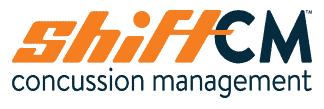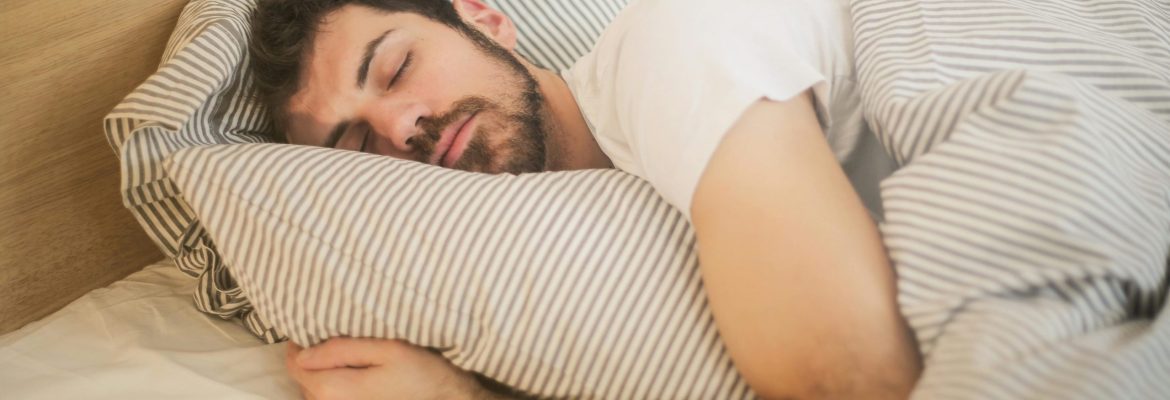Sleep disturbance and concussions are closely interrelated. An estimated 30%–70% of concussion patients report difficulty sleeping in the first few weeks post-injury (Mosti et al., 2016). Insomnia symptoms are reported in 30% of people, and 43% to 73% of people report symptoms of fatigue. (Mosti et al., 2016).
Here’s an overview of the relationship between sleep and concussions:
Impact of Concussions on Sleep
People with concussions often report that they are excessively sleepy in the first week following injury and may report taking daytime naps (Mosti et al., 2016). However, 2 to 3 weeks after their injury, they may report difficulty falling asleep or early morning awakenings, which may fuel daytime fatigue (Mosti et al., 2016).
Sleep Disturbances Post-Concussion: Concussions often lead to various sleep problems, including insomnia, hypersomnia (excessive sleepiness), and irregular sleep patterns (Mosti et al., 2016). Individuals may experience difficulty falling asleep, staying asleep, or waking up too early. This can impact their ability to get into deep sleep, where the brain needs to be to help recover from the concussion.
Daytime Sleepiness: Many people with concussions report excessive daytime sleepiness. This can be due to disrupted nocturnal sleep or direct effects of the brain injury. The circadian rhythm can be impacted since it is regulated by the hypothalamus (part of the brain), which can be affected after a concussion.
Sleep Apnea: Concussion symptoms typically resolve within 7–10 days, but 10–25% of patients do not fully recover in this timeline (Santos et al., 2020). They can develop post-concussion syndrome (PCS), which includes sleep abnormalities such as obstructive sleep apnea (Santos et al., 2020). A sleep study would be needed to determine if that is the case and this requires additional medical intervention.
Sleep and Cognition
Overall, sleep disturbance was significantly more likely to be associated with cognitive dysfunction after a concussion (Oyegbile et al., 2020). After three or more concussions, there were stronger correlations between sleep disturbance and cognitive dysfunction when compared to a first or second (Oyegbile et al., 2020). However, it is still possible that after one concussion, there can be effects on cognition related to sleep disturbance. Especially if the person had sleep disturbances before the concussion.
Specifically, individuals with ≥ 3 concussions exhibit higher levels of sleep disturbance (Oyegbile et al., 2020). This finding was associated with significantly lower visual and verbal memory scores compared to those with a first or second concussion (Oyegbile et al., 2020). In addition, individuals with ≥ 3 concussions exhibit higher levels of sleep disturbance, which was associated with significantly slower reaction time performance and slower visual motor speed compared to those with a first or second concussion (Oyegbile et al., 2020).
Therefore, it is evident that cognition can be impacted by poor sleep after a concussion and through the concussion recovery. Especially as we have more concussions, the cognitive impact from sleep becomes greater.
Importance of Sleep in Concussion Recovery
Sleep is crucial for brain healing and cognitive recovery post-concussion. During sleep, the brain undergoes repair processes, including clearing toxins and repairing neural connections (Santos et al., 2020). Below are the ways sleep can impact your function:
Cognitive Function: Adequate sleep is essential for cognitive functions such as memory, attention, and executive function, all of which can be impaired after a concussion. Quality sleep supports these cognitive processes, aiding in a quicker and more complete recovery.
Memory Consolidation: Sleep plays a key role in memory consolidation, helping to solidify new information and skills learned during the day. This is especially important when learning new things.
Neuroplasticity: Adequate sleep promotes neuroplasticity, the brain’s ability to reorganize itself by forming new neural connections, which is vital after a concussion.
Mood and Mental Health: Sleep disturbances can exacerbate symptoms of anxiety and depression, which are common after a concussion. Ensuring good sleep hygiene can help mitigate these mental health challenges.
Reducing Symptoms: Proper sleep can help alleviate common concussion symptoms like headaches, dizziness, and irritability. Proper sleep can also relieve physical pain felt by the body, such as neck pain related to the injury that caused the concussion. This is not to say that sleep directly mediates the neck pain, but the brain’s pain receptors are less receptive to pain signals.
Managing Sleep After a Concussion
Poor quality and quantity of sleep can be challenging to deal with, however there are some ways to try and combat this:
Prioritize Rest and Sleep:
- Initial Rest: In the first 24-48 hours after a concussion, ample rest is critical. Limit physical and cognitive activities to allow the brain to recover.
- Regular Sleep Schedule: Establish a regular sleep routine by going to bed and waking up at the same time each day. This includes on weekends as well.
Create a Sleep-Conducive Environment:
- Dark and Quiet: Ensure the sleep environment is dark, quiet, and comfortable. Use blackout curtains and earplugs if necessary. Avoid using a bright digital alarm clock to avoid adding more light to the room.
- Comfortable Bedding: Invest in comfortable bedding to improve sleep quality. This includes a pillow that supports the neck and sheets that do not hold heat, like cotton.
- Associate the Bed with Sleep: Limit the amount of time you spend awake in bed. Ensure you are just in bed when you are trying to sleep, not studying, reading or scrolling on your phone.
Avoid Stimulants and Screens:
- Limit Screen Time: Reduce exposure to screens (phones, computers, TVs) at least an hour before bedtime to avoid blue light, which can disrupt sleep and keep you up longer.
- Avoid Caffeine and Nicotine: Refrain from consuming caffeine and nicotine, especially in the afternoon and evening.
Nutrition & Exercise
- Avoid alcohol, sugary foods or heavy meals: Within 4 hours before bedtime, avoid all these, and ideally, all together.
- Exercise: Daily exercise is important, but not within 2 hours of bedtime. This can keep you up longer if it is too close to bedtime.
- Natural Light: Expose yourself to natural light during the day, like walking outdoors or spending time near a window with sunlight.
- Hydration: Keep yourself hydrated (4-6 glasses of water daily) and avoid soft drinks.
Practice Relaxation Techniques
- Mindfulness and Meditation: Engage in relaxation techniques such as mindfulness, meditation, or deep breathing exercises before bed.
- Gentle Activities: Activities like reading a book (not on a screen) or listening to soothing music can help prepare the body for sleep.
Monitor Sleep Patterns
- Sleep Diary: Keep a sleep diary to track sleep patterns and identify issues. Note when you go to bed, wake up, and awakenings during the night.
- Consult Healthcare Providers: If sleep disturbances persist, consult a healthcare provider who may recommend further evaluation or treatment, such as cognitive behavioural therapy for insomnia (CBT-I).
Conclusion
Sleep is a cornerstone of concussion recovery due to its role in brain healing, cognitive function, and symptom management. By prioritizing sleep and following a structured recovery plan, individuals can support their brain’s recovery process and mitigate the impact of concussion symptoms. Always consult with healthcare professionals for personalized advice and guidance tailored to the specific needs of the person recovering from a concussion.
If symptoms are lingering longer than expected, get an assessment by a concussion-specific healthcare provider to assist with your recovery. At Shift Concussion Management, we are well-versed in guiding you in your concussion recovery related to sleep disturbance post-concussion.
- Mosti, C., Spiers, M. V., & Kloss, J. D. (2016). A practical guide to evaluating sleep disturbance in concussion patients. Neurology: Clinical Practice, 6(2), 129-137. https://doi.org/10.1212/CPJ.0000000000000225
- Oyegbile, T. O., Dougherty, A., Tanveer, S., Zecavati, N., & Delasobera, B. E. (2020). High sleep disturbance and longer concussion duration in repeat concussions. Behavioral sleep medicine, 18(2), 241-248.
- Santos A, Walsh H, Anssari N, Ferreira I, Tartaglia MC. Post-Concussion Syndrome and Sleep Apnea: A Retrospective Study. J Clin Med. 2020 Mar 4;9(3):691. doi: 10.3390/jcm9030691. PMID: 32143445; PMCID: PMC7141351.


Leave a Reply